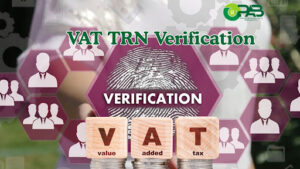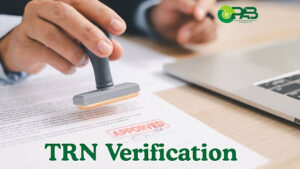Since the UAE introduced Corporate Tax, one of the most common challenges for businesses has been staying compliant with FTA filing deadlines and avoiding penalties. The Federal Tax Authority (FTA) closely monitors registration, filing, and payment, and any delay or error can lead to costly fines. In 2025, these penalties can reach thousands of dirhams if companies fail to register, file, or pay correctly.
Understanding how to act early and file accurately can save your business money, protect its reputation, and keep operations running smoothly. Read on to learn how to avoid penalties for FTA Corporate Tax filing, how the new waiver rules work, and what practical steps keep your business compliant.
What Penalties Can Result from Faulty or Late FTA Corporate Tax Filing?
Even small errors in tax compliance can result in administrative penalties under Cabinet Decision No. 75 of 2023 on Corporate Tax violations.
Key Points to Remember
✅AED 10,000 penalty applies for late Corporate Tax registration.
✅Late filing can trigger AED 500 per month for the first 12 months and AED 1,000 per month thereafter.
✅Late payment results in a monthly penalty at 14 percent per annum on unpaid tax, accruing from the day after the due date.
✅Incorrect or incomplete returns may lead to AED 500 fixed fines and, in some cases, additional penalties if not corrected before the filing deadline.
The UAE government also introduced a Corporate Tax Fine Waiver Initiative that can automatically remove or refund the AED 10,000 late-registration penalty if businesses meet specific conditions.
📚Also Read: Corporate Tax Filing Deadline 2025: Filing Dates & Rules in UAE
Common FTA Corporate Tax Penalties You Need to Know
Late Registration Penalty
Failing to register by your FTA-assigned deadline results in a AED 10,000 fine.
However, this may be automatically waived or refunded if you file your first Corporate Tax return or annual declaration within seven months after the end of your first tax period, according to the FTA Penalty Waiver Initiative.
If you already paid the fine, the amount can be credited or refunded in your EmaraTax account.
Late Filing of Corporate Tax Return
Submitting your return after the deadline results in:
✅AED 500 per month (or part) for the first 12 months
✅AED 1,000 per month (or part) from month 13 onwards
Late Payment Penalty
If the return is filed but the tax payment is delayed:
✅A monthly penalty of 14 percent per annum is applied from the day after the due date until payment is settled
Incorrect or Incomplete Returns
Submitting wrong or missing information can trigger:
✅AED 500 fixed penalty (unless corrected before the deadline)
✅Additional disclosure penalties if not voluntarily corrected on time
Even if unintentional, taxpayers are responsible for verifying accuracy before submission.

How the FTA Penalty Waiver Initiative Works
The Corporate Tax Fine Waiver Initiative is designed to help businesses transition smoothly into the new tax era.
How It Works
- If your AED 10,000 late-registration penalty is unpaid, it will be automatically waived when you file your first Corporate Tax return or annual declaration within seven months of your first tax period’s end.
- If already paid, the amount will be credited or refunded in EmaraTax.
- The waiver applies only to the first tax period.
- No separate application is needed, as the waiver is handled automatically in EmaraTax.
- The waiver applies only to penalties, not to unpaid tax.
📚Also Read: FTA Fines and Penalties in UAE: What Businesses Must Know
Step-by-Step Actions to Avoid FTA Corporate Tax Filing Penalties
Step 1 – Know Your Tax Period and Deadlines
Your first tax period depends on your financial year.
- Most businesses follow the Gregorian calendar.
- The statutory filing and payment deadline is nine months after the financial year ends (for FY ending 31 Dec 2024 → 30 Sep 2025).
- To qualify for the waiver, file within seven months (31 Jul 2025).
Step 2 – Register Early via EmaraTax
Register promptly through the EmaraTax portal under FTA Decision No. 3 of 2024, which assigns staggered deadlines by license month for resident juridical persons.
Late registration automatically triggers the AED 10,000 penalty.
You will need:
- Trade license
- Emirates ID or passport of owner
- Business activity details
- Financial and contact information
Step 3 – Prepare Accurate Financial Statements
Maintain organized accounting records following IFRS or IFRS for SMEs.
Attach financial statements with your CT return.
Audited statements are mandatory only if:
- Annual revenue exceeds AED 50 million
- You are a Qualifying Free Zone Person (QFZP)
- You belong to a tax group (audited special-purpose FS required)
Working with a qualified tax advisor like OPAB helps reduce errors and ensures compliance.
📚Also read: Best Accounting Software UAE 2025: Tools for Businesses
Step 4 – File Your Corporate Tax Return Correctly
When filing:
- Log in to EmaraTax.
- Complete all required fields accurately (income, deductions, tax payable).
- Attach the financial statements (audited if required).
- Review before submission.
- Save confirmation and reference number.
Step 5 – Pay the Tax Due on Time
Make payments through approved channels such as GIBAN, eDirham, or bank transfer within nine months of the tax period end.
Late payment incurs the 14 percent per annum penalty.
Keep payment proof for at least seven years.
Also read: [How to Calculate Corporate Tax in UAE]
Step 6 – Check for Waiver or Refund Confirmation
After filing, monitor your EmaraTax dashboard:
- If unpaid, the AED 10,000 penalty should disappear automatically.
- If paid, look for a refund or credit entry.
Keep transaction IDs and screenshots for records.
Step 7 – Stay Consistent with Future Filings
The waiver applies only to your first tax period.
Continue registering, filing, and paying on time every year, and monitor FTA announcements for updates.

Examples of Waiver Scenarios
| Scenario | Action Taken | Result |
| Late registration, penalty unpaid, return filed within 7 months | Filed first return on time | Penalty automatically waived |
| Penalty paid but return filed within 7 months | Complied with all rules | Refund or credit issued |
| Filed after 7 months | Missed deadline | No waiver granted |
| Fully compliant and paid on time | Excellent standing | No penalty applied |
Free Zone and Exempt Entities: What You Should Know
Many Free Zone companies still have filing obligations.
✅Qualifying Free Zone Persons (QFZPs) must register and file returns to maintain the 0 percent rate on qualifying income and must keep audited financial statements.
✅Exempt persons such as public benefit entities or investment funds must register and file an annual declaration within nine months of the year end.
Failure to file, even at 0 percent, can trigger penalties.
If you operate in a free zone, consult a qualified accountant to confirm your status. OPAB can help you structure your filings correctly and stay within FTA rules.
Expert Tips to Avoid FTA Corporate Tax Filing Penalties
✅Set calendar reminders for registration, 7-month waiver, and 9-month filing/payment dates.
✅Use reliable accounting software such as Odoo, Zoho Books, or QuickBooks.
✅Reconcile books monthly and review before filing.
✅Confirm transfer-pricing documentation requirements under Ministerial Decision No. 97 of 2023.
✅Engage a certified tax agent for compliance assurance.
✅Keep digital and physical records for at least seven years.
Partnering with a professional firm like OPAB ensures your filings are accurate, timely, and fully compliant.
📚Also read: Filing VAT Returns in UAE: What Every Business Must Know
Conclusion
Avoiding FTA Corporate Tax filing penalties is straightforward when you act early, stay organized, and maintain accurate records. By understanding deadlines, filing correctly through EmaraTax, and adhering to FTA rules, your business can avoid unnecessary costs and stress.
If you need expert support for setting up accounting software or ensuring smooth tax compliance, reach out to Outsource Prime Accountants and Bookkeepers (OPAB).
OPAB helps businesses across Dubai and the UAE implement and optimize solutions like Odoo, Zoho Books, and QuickBooks, ensuring clarity and compliance.
Contact OPAB today for tailored guidance that fits your business.
FAQs
Is it mandatory to file Corporate Tax in the UAE?
Yes. All taxable persons, including mainland and qualifying free zone entities, must register and file a Corporate Tax return through EmaraTax within nine months after each tax period.
What is the penalty for filing Corporate Tax late?
A AED 500 penalty per month (or part) applies for the first 12 months, and AED 1,000 per month (or part) from month 13 onward.
When should you submit a Corporate Tax return?
Within nine months of the financial year end. To qualify for the waiver, file within seven months for the first tax period.
What is the deadline for Corporate Tax registration in 2025?
Follow FTA Decision No. 3 of 2024, which sets staggered registration deadlines by license month for resident juridical persons. Missing it results in a AED 10,000 fine.









